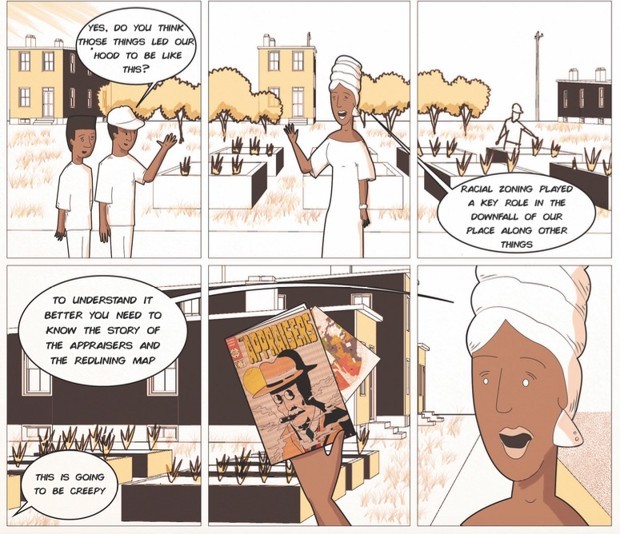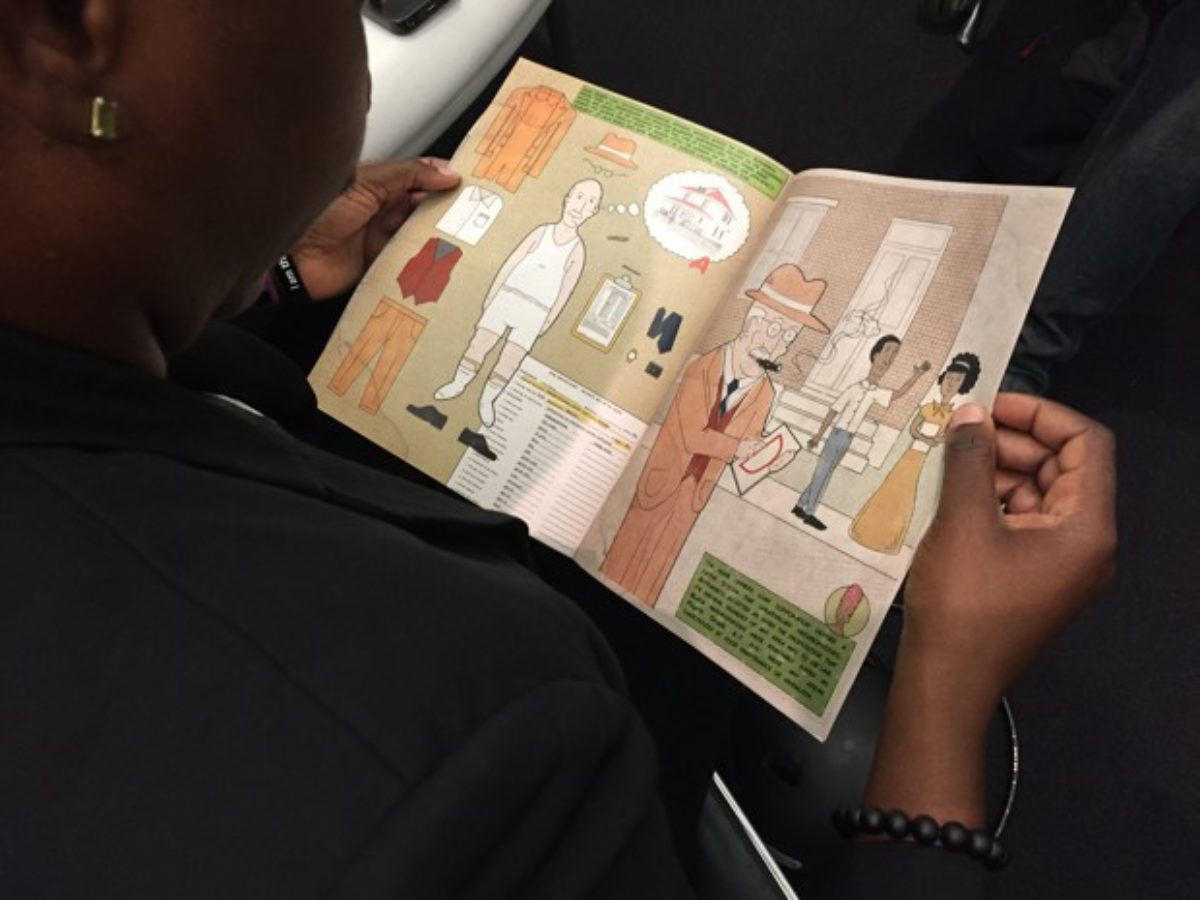The Harvard University School of Design’s Fall 2016 option studio “Affirmatively Further: Fair Housing After Ferguson” investigated the 1968 Fair Housing Act through the lens of Ferguson, Missouri, and patterns of segregation and injustice that have fueled recent unrest in the region. Led by Daniel D’Oca (MUP ’02), the studio engaged with local advocacy groups, residents, elected officials, and others, and produced a playbook of speculative proposals for Forward Through Ferguson, the organization charged with being the St. Louis region’s “transition team” following the Ferguson Commission report released in September 2015.
In the wake of its findings, the “Affirmatively Further” studio has garnered national media attention, with profiles in The Atlantic’s CityLab and at Next City, as well as airtime on St. Louis Public Radio.
D’Oca, associate professor in practice of urban planning, structured the course as an interdisciplinary studio in order to apply diverse perspectives to the set of considerations at stake. The group travelled to St. Louis to meet with local organizers, residents, and elected officials in order to learn about issues facing the region first-hand.
“All of the projects had to respond to the needs of someone they met on the trip,” D’Oca told CityLab. “It couldn’t be just someone sitting on computer saying, ‘Oh, I think what St. Louis needs is a new designed housing apartment complex.’ It had to be in collaboration with someone from the trip.”

As part of the course, students created graphic novels to illustrate how these tools of exclusion—annexation, eminent domain, predatory lending, and others—were used in the region by architects, planners, developers, and others (view pages from Ruben Segovia’s (MArch ’17) graphic novel—The Tracers—in the CityLab article).
Each student partnered with a local organization on a speculative proposal meant to affirmatively further fair housing in St. Louis. Their recommendations had to be both site specific and scalable.
Cory Berg (MUP ’17) worked with the organization Team TIF to develop educational materials that explain the current tax incentive landscape to the everyday taxpayer. A better understanding of these incentives, Berg hopes, will empower residents so that they can better advocate for how and where their taxes are spent.
The city of St. Louis was the focus of last spring’s “Voices and Visions of St. Louis” conference that explored questions of social justice and the American city. “There is no easy fix. You can’t change history,” said Diane Davis, Charles Dyer Norton Professor of Regional Planning and Urbanism and chair of the department of urban planning and design, in the Harvard Gazette ahead of that conference. “But I do think planning has a lot to offer with respect to charting a different future. Part of this has to do with engaging people more in determining the fate of the places they live in, rather than having those ideas imposed on them.”
D’Oca previously led the Fall 2015 option studio “The MLK Way: Building on Black America’s Main Street,” which examined streets named after Dr. Martin Luther King, Jr. across the country, their disrepair, and possible design interventions.
